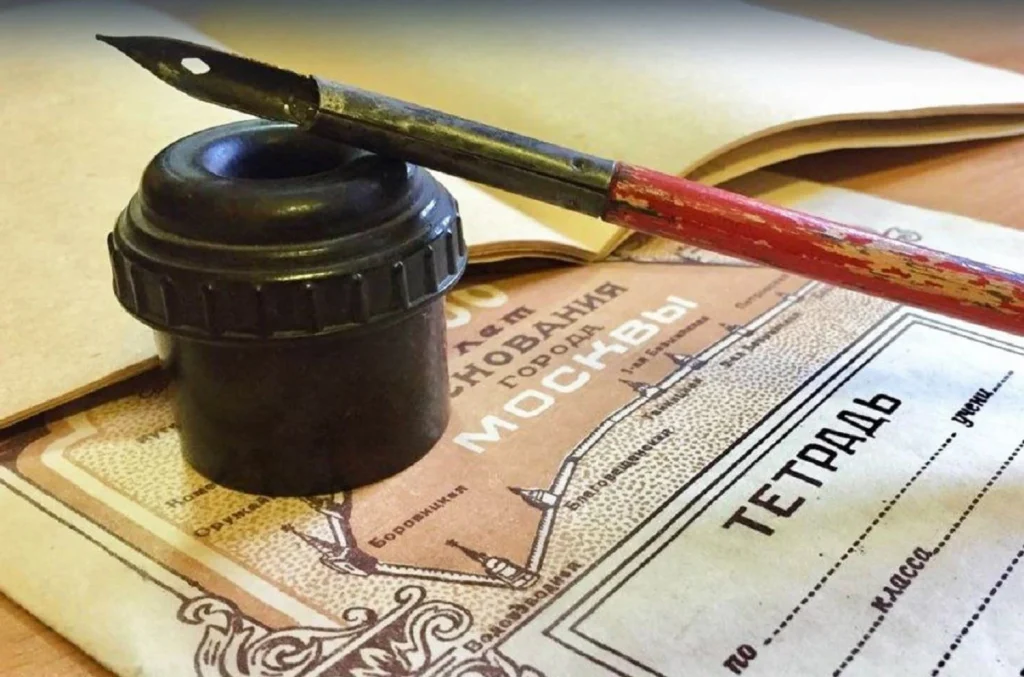Listen to the article
Russian authorities are implementing a controversial educational initiative aimed at immersing school children in the educational environment of World War II, according to a report from Ukraine’s National Security and Defense Council’s Center for Countering Disinformation (CCD).
The program, part of the “Teachers of Victory” project, will have students using slide rules and pens with inkwells to recreate the learning conditions experienced during what Russia refers to as the “Great Patriotic War.” Ukrainian officials have criticized the initiative as another component of the Kremlin’s broader strategy to militarize childhood and indoctrinate young Russians.
“Such initiatives are part of the Kremlin’s strategy to militarize childhood,” the CCD stated in its report. “The Russian authorities continue to build a culture of worship of the ‘great victory,’ turning the school into an instrument of ideological education.”
The CCD further argued that these historical reenactments serve a purpose beyond mere education about World War II events. According to Ukrainian officials, the underlying objective is to normalize the concept of armed conflict in the minds of young Russians and promote military service as an aspirational career path.
“Under the guise of ‘memory of the war,’ children are taught to perceive armed aggression as the natural state of their state, and military service as a life ideal,” the report stated.
This initiative comes amid heightened tensions between Russia and Ukraine, with the ongoing conflict now in its third year. Education has emerged as a significant battleground in this conflict, with both countries accusing each other of manipulating historical narratives for political purposes.
The CCD report draws a stark contrast between what it considers normal educational objectives and Russia’s approach. “In a normal society, education opens the way for children to the future – to knowledge, technology. The Russian education system, on the contrary, drags them into a past built on lies and military hysteria,” the agency noted.
Ukrainian officials also claim that Russia has allocated 1.5 billion rubles (approximately $16 million) for propaganda in schools located in temporarily occupied Ukrainian territories. This includes the introduction of new “textbooks on the history of Donbas and Novorossiya,” terms used by Russia to refer to eastern Ukrainian regions where it claims historical and cultural ties.
Education experts note that using historical reenactment as a teaching tool is not uncommon globally, but the political context surrounding this particular initiative raises concerns. Dr. Elena Korosteleva, Professor of International Politics at the University of Kent, commented, “Historical reenactment can be a powerful pedagogical tool when used to promote critical thinking about the past. However, when embedded within nationalistic narratives, it risks becoming a vehicle for indoctrination rather than education.”
The militarization of education in Russia has been a growing trend in recent years, with mandatory military training reintroduced to the school curriculum and the expansion of the Youth Army (Yunarmia), a military-patriotic movement for children aged 8-18.
This latest educational initiative reflects Russia’s continuing emphasis on patriotic education, which has intensified since the beginning of its full-scale invasion of Ukraine in February 2022. Critics argue that such programs serve to prepare the next generation of Russians for potential military service and instill unquestioning loyalty to the state.
As tensions between Russia and Ukraine continue, the battlefield extends beyond military confrontations to include competing historical narratives and educational approaches that will shape future generations’ understanding of the ongoing conflict.
Fact Checker
Verify the accuracy of this article using The Disinformation Commission analysis and real-time sources.




8 Comments
This program seems like a concerning attempt to glorify armed conflict and the Russian government’s role in WWII. I hope there are robust checks and balances to ensure these educational initiatives remain objective and do not become tools of propaganda.
Attempting to recreate the educational environment of WWII-era Russia raises concerns about the underlying motives. Immersing children in such a stark, militaristic setting could normalize violence and conflict in troubling ways.
While I understand the desire to teach children about important historical events, this initiative seems more focused on glorifying the Russian government’s role than providing a balanced, objective education. I hope there are safeguards in place to prevent propaganda.
Immersing children in the harsh realities of war, even through simulation, raises concerns about the potential psychological impacts. I wonder if there are more age-appropriate ways to teach this history that don’t risk traumatizing young students.
Bringing back Soviet-era education methods to reenact WWII seems like a misguided way to teach history. Wouldn’t a more balanced, critical approach be better for developing well-rounded, ethical citizens?
This program seems like a worrying attempt to indoctrinate young Russians and promote a specific ideological narrative around WWII. I hope Russian authorities reconsider this approach and focus on fostering critical thinking and balanced historical education instead.
While historical reenactments can be educational, this initiative appears to have an underlying agenda of militarization and ideological indoctrination. I hope Russian authorities reconsider this approach and focus on holistic, unbiased learning instead.
This seems like a concerning attempt to glorify and indoctrinate young Russians about armed conflict. Normalizing such violence in the classroom is troubling and could have lasting impacts on these children’s worldviews.